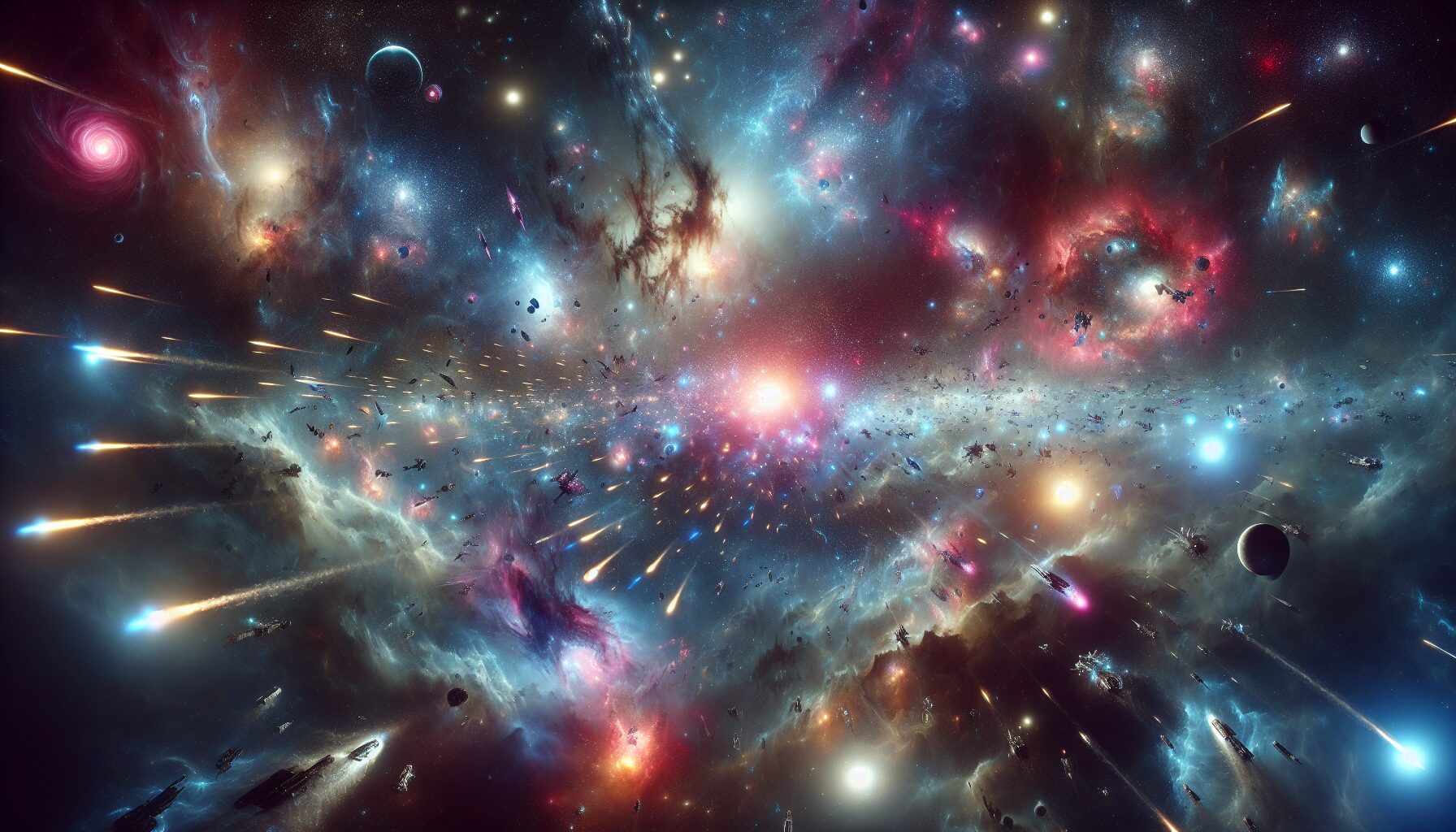The concept of interstellar war has long captivated human imagination, serving as a staple in science fiction and theoretical physics alike. While often romanticized in literature and film, the reality of such a conflict would be devastating, with both anticipated and unforeseen consequences resonating throughout the universe.
Theoretical Framework of Interstellar Conflict
While humanity has yet to reach a level of technological prowess that makes interstellar travel feasible, theorists and futurists ponder the implications should we ever interact with extraterrestrial civilizations. Carl Sagan, the renowned astrophysicist, once remarked, “The universe is a pretty big place. If it’s just us, it seems like an awful waste of space.” The implications of this observation suggest that there might be other civilizations capable of initiating conflict across the stars.
Potential Triggers of Cosmic Warfare
The possible triggers for such an expansive conflict are varied:
- Resource Scarcity: Planets rich in scarce elements, vital for advanced technology, could become flashpoints for disputes.
- Philosophical Differences: As in Earth’s own history, divergent worldviews or beliefs could lead to catastrophic confrontations.
- Expansion Needs: Overpopulation and the subsequent search for habitable planets may push civilizations to claim territories by force.
The Weapons of Tomorrow
Unlike terrestrial warfare, which relies on conventional weaponry, interstellar war would require an entirely new arsenal:
- Energy Weapons: Lasers and focused energy beams that can travel vast distances with minimal dissipation.
- Kinetic Impactors: Objects propelled at relativistic speeds to cause catastrophic impacts, utilizing the sheer power of kinetic energy.
- Molecular Disruptors: Hypothetical weapons designed to weaken or disrupt molecular bonds, effectively disintegrating targets.
Impacts on Civilization
Should such a conflict arise, the impacts on involved civilizations would be profound. A poignant reflection by Stephen Hawking cautions, “I think the survival of the human race will depend on its ability to find new homes elsewhere in the universe.” This highlights the precarious position civilizations might find themselves in, dependent on their capability to adapt and survive amidst cosmic adversity.
Some of the key impacts include:
- Technological Advancements: Necessitated by the demands of war, potentially resulting in innovations that alter life as we know it.
- Cultural Shifts: As societies endure the pressures of war, cultural paradigms could shift dramatically, emphasizing survival and expansion.
- Alien Alliances: Similar to historical alliances on Earth, interstellar partnerships could form, reconfiguring galactic power balances.
The Ethics of Interstellar War
While the logistics and outcomes of an interstellar war are largely speculative, the ethical considerations remain pivotal. A key question is whether civilizations have the moral right to wage war on such a grand scale. Would the potential benefits outweigh the loss of life and destruction? As humanity contemplates this, lessons from past Earth conflicts might offer guidance.
“War does not determine who is right, only who is left.” – Bertrand Russell
Concluding Thoughts
The enormity of interstellar war, with its cosmic-scale implications, serves as both a warning and a challenge. As humanity steps closer to the stars, we must ask ourselves how prepared we are to face the vast unknowns, and whether we can find peace in the expansive frontier.
For more insights into the science of future space exploration, visit NASA and SETI Institute.
The future remains uncertain, but one constant prevails: the unyielding human spirit to explore, discover, and survive.
